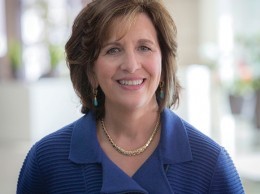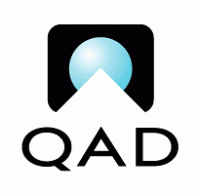Santa Barbara-based software developer QAD’s transition to cloud-based products is proving to be a lucrative move for the company, pumping up subscription revenues.
However, as the firm has focused on the transition, the company has admittedly lost some of its relevance with investors. But having recently closed a secondary offering that netted the company about $37.1 million on Jan. 22, the firm is hoping to reestablish its luster with the investor community.
“The offering really improves our float with investors,” QAD’s chief financial officer Daniel Lender said. “We are definitely well positioned in the cloud [enterprise resource planning] market. With the offering, we have more flexibility to look for organic growth and potential acquisitions.”
While the funds aren’t earmarked for any specific use, QAD has a history of making strategic acquisitions that enhance its products or help it gain ground in other vertical markets. Lender said the firm has been concentrating on its transition to the cloud but acquisitions have always been a part of its growth strategy.
QAD has acquired three companies in the last eight years but has kept them as separate divisions because of the markets they service. Cebos, QAD’s most recent addition, makes quality management software mainly geared toward automotive and life science markets. The company purchased Michigan-based Cebos for $5 million in 2012. Just prior to adding Cebos, QAD bought DynaSys, a Strasbourg, France-based supply chain management software firm for $7.5 million. In 2006, QAD acquired Precision Software, a global logistics software firm headquartered in Lisle, Illinois, for $14.5 million.
With at least some of the proceeds from the offering, QAD is likely gearing up to go on the hunt again said Richard Davis, an industry anaylist at Canaccord Genuity.
“They’re not going to go crazy and buy 10 or 20 companies, but [the offering] gives them a war chest to make tuck-in acquisitions,” he said. “It’s not going to be like Oracle taking over PeopleSoft, but they’ll be smaller, additive companies to their business.”
Apart from potential acquisitions, QAD continues to put more resources behind its cloud ERP movement, following the lead of software providers like Adobe, Autodesk and others that have pushed the model. For QAD, many of the company’s customers are incorporating hybrid systems that feature both on-site infrastructure and cloud services.
Thanks to the cloud, companies can knit together a loosely coupled business system consisting of fit-for-purpose, cloud-enabled applications tethered to more narrowly focused legacy ERP back-office systems. Many of QAD’s customers operate multiple sites in multiple countries that require a distributed IT infrastructure. Because of this, QAD expects its hybrid deployment approach to help boost revenues even further as customers retire old systems and convert to the cloud.
According to filings with U.S Securities and Exchange Commission, QAD anticipates its investment priorities will be growing the cloud business and developing sales and service resources, as well as continued investment in research and development. The company increased research and development spending in the third-quarter of 2014 by 4 percent over the same quarter the previous year, according to filings.
“We’ve been growing the cloud-based business over the last 12 months and its accounts for about 40 percent of revenues now,” Lender said. “We’re definitely focusing and working on growing that as long as we can.”
The company’s filing show that in the first nine months of fiscal 2015, subscription revenue, where cloud revenues are reported, increased by 50 percent to $20.3 million compared to the prior year period. The company said it expects cloud revenue in fiscal 2015 to grow at a rate above 40 percent.
Canaccord’s Davis said QAD’s cloud transformation is a familiar story and one that could translate to better performance in the stock market.
“Investors like the predictability that comes with subscription revenue and cloud-based software,” Davis said. “It’s also advantageous to the vendor because it’s less costly to develop and maintain.”
Having followed QAD for a decade, Davis said it’s hard to get people interested in the story, but that the offering and efforts the company is pushing now should create more velocity and higher valuation.
The company’s next earnings report is slated for March 12. At the market’s close on Jan. 28, QAD’s shares were up 1.6 percent to $16.26.






 Print
Print Email
Email
















